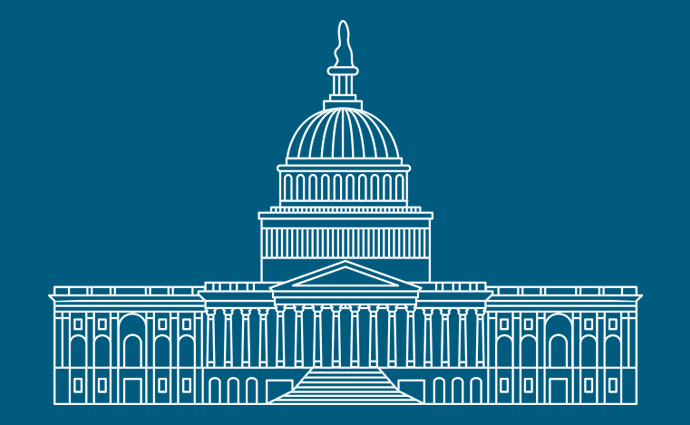Latest Coronavirus Relief Bill Seeks Another $100B for Providers
The HEROES Act would allocate another $100B to provider reimbursement, as well as increase the federal matching rate for Medicaid and seek COBRA subsidies.

Source: Thinkstock
- A new coronavirus relief bill is looking to give providers another $100 billion in grants for healthcare-related expenses and lost revenue directly attributable to the public health emergency resulting from COVID-19.
For more coronavirus updates, visit our resource page, updated twice daily by Xtelligent Healthcare Media.
Pass by the House on May 15 in a 208-199 vote, the Health and Economic Recovery Omnibus Emergency Solutions (HEROES) Act is a $3 trillion coronavirus relief bill that seeks to provide additional direct payments to a wide range of agencies, businesses, and even individuals impacted by the coronavirus.
Healthcare organizations and agencies would get a significant portion of the funding. In addition to the $100 billion in grants for providers, the American Hospital Association (AHA) also highlighted other healthcare-related funding in the 1,815-page bill, including:
- Nearly $1 trillion for states and local governments to respond to COVID-19
- An increase in the federal matching rate to states for Medicaid by 14 percent
- $75 billion to bolster coronavirus testing and contact tracing efforts
- Changes to the terms of the Medicare accelerated and advanced payment programs and an increase in inpatient prospective payment system outlier payments for patients diagnosed with COVID-19
- A $200 billion "Heroes Fund" to ensure essential workers receive hazard pay
- Protections for individual who lost employer-provided health insurance by providing COBRA subsidies and creating a special enrollment period for health insurance marketplaces
“The bill will help us shore up our public health infrastructure for the long road ahead. It provides additional resources to support our frontline health care providers, replenish much-needed medical supplies and prepare for the manufacturing and distribution of vaccines when they become available,” said Robert C. "Bobby" Scott (D-VA), chairman of the House Committee on Education and Labor and co-sponsor of the bill.
Hospitals have been requesting additional funding from the federal government since the implementation of two coronavirus relief packages, the Coronavirus Aid, Relief and Economic Security (CARES) Act and the Paycheck Protection Program and Health Care Enhancement Act. Together, the packages created a $175 billion Provider Relief Fund.
But the grants from the Provider Relief Fund are not enough to stabilize healthcare providers and support them as the country attempts to reopen the economy, the AHA said in a recent study. The study published last week estimated that hospitals will lose over $202 billion through June on coronavirus-related expenses alone.
“[W]e greatly appreciate the additional $100 billion that this bill would add to the COVID19 emergency fund for hospitals and other providers,” AHA said in a May 14 letter House Speaker Nancy Pelosi. “The initial disbursements from this fund have provided our hospitals with some much-needed support and resources, but more is urgently needed.”
However, the association expressed concerns with the government’s ability to quickly disburse funds to hospitals and other providers, which are needed immediately. Funds should also not account for the full amount of staff furloughs and layoffs from revenue loss amounts, they added.
But securing additional federal funding from the latest coronavirus relief bill may be difficult. Senate Majority Leader Mitch McConnell (R-KY) indicated last week that there is not a pressing need to pass additional legislation at this time. According to a report from The Hill, Senator McConnell said he has been communicating with the White House, assessing what has already been done to determine if further support is needed.
Multiple other hospital groups voiced support for the HEROES Act, including the Federation of American Hospitals (FAH), which said the bill is “builds on the CARES Act to provide critical resources to sustain our health care infrastructure while giving caregivers the necessary support both to defeat the virus and to enable hospitals to return to delivery of scheduled services.”
The Association of American Medical Colleges also commended lawmakers for creating the HEROES Act, saying that the bill “addresses many important issues facing the medical schools, teaching hospitals, researchers, and faculty physicians who are on the front lines of the nation’s response to COVID-19.” The association, however, urged Congress to “pass legislation with broad support that will help all of those impacted by this national emergency as quickly as possible.”
FAH added that the next coronavirus relief package should also include additional priorities, such as COVID-19 medical liability protections for hospitals.
